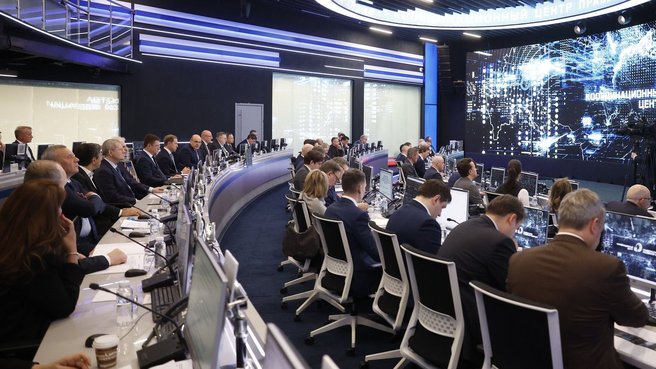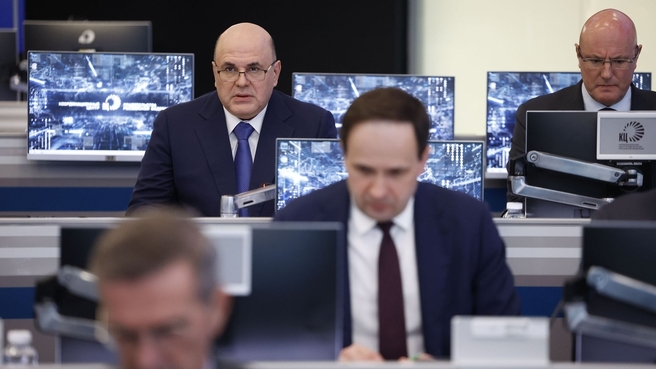Mikhail Mishustin: “This track is instrumental to ensure that the economy has the qualified staff it needs – professionals undertaking research projects, working in manufacturing or in any other sector and contributing their knowledge and efforts to achieving the national development goals set by the President.”
Mikhail Mishutin’s opening remarks:
Good afternoon, colleagues.
Today, we will discuss matters dealing with higher education.
This track is instrumental to ensure that the economy has the qualified staff it needs – professionals undertaking research projects, working in manufacturing or in any other sector and contributing their knowledge and efforts to achieving the national development goals set by the President. Reinforcing our country’s technological, economic, industrial and financial sovereignty would be impossible without advanced, cutting-edge research.
Russia has long established itself as a technological education powerhouse.
Given the sanctions and restrictions we are facing, domestic enterprises need talent like never before, including developers of new technology, engineers specialising in systems design, software developers, and specialists working in a plethora of other areas whom we need to reinforce our industrial potential.
To deliver on these objectives, the national education system must be upgraded and become competitive internationally. This is why we need to take a closer look at the current situation in this sector and come up with new comprehensive solutions and approaches.
Among other things, this must enable us to respond to the demands and challenges we are facing today. The world is currently transitioning to a new technological paradigm. Accordingly, this changes what we expect from people working in various sectors. We are also witnessing the emergence of new professions requiring advanced competences in innovation.
Of course, we must be proactive in attracting young people to carry out research projects. Among other things, the multiple initiatives held as part of the Decade of Science and Technology, as declared by the President in 2022, are designed to fulfil this objective.
Government support helped industrial companies to adapt in a difficult environment. The output of knowledge-based products is being increased in many areas. Effective innovative solutions are being created.
To reduce dependence on foreign components and equipment, the Government has decided to launch major projects to develop Russia’s own industries in a broad range of sectors from machine-tools and aircraft to electronics and pharmaceuticals.
All these projects significantly expand the range of tasks facing academia and enhance the responsibility of our leading universities, which serve as a model for other educational institutions.
In agriculture, these include the Timiryazev Academy, in aviation – the Moscow Aviation Institute, in the nuclear industry – the Moscow Engineering Physics Institute, and in machine tools – the Moscow Machine Tool Design Institute. The flagship of Russian engineering education is the Bauman Moscow State Technical University, a talent incubator for key industries throughout its history.
These major universities should be the first to undergo change so as to be fully prepared to meet the challenges facing our country today.
For this, it is necessary to reformat their focus areas, adjust principles underlying both curricula and R&D, and streamline their personnel policies, primarily where teacher selection is concerned.
It is of importance that simultaneously these universities emerge as experimental platforms for government-proposed measures and innovations, which later will be introduced on a wider scale in all regions of this country.
Colleagues,
I suggest that we devote this meeting to mapping out further trajectory of development for the Bauman Moscow State Technical University, one of the oldest Russian institutions of higher learning.
This university forms strong research teams and commissions modern educational buildings with well-equipped laboratories and comfortable student hostels. This year, it will complete the construction of a world-level campus.
I think that this university should set itself maximally ambitious, if attainable, goals, primarily the goal of training top-class specialists capable of addressing the most difficult tasks confronting this country and its society.
It is also necessary to analyse how the university will use its potential in the context of state programmes and what contribution it will be able to make to the national economy and the effort to create new support points for technological growth and improvement of our citizens’ living standards.













